New Zealand egg shortage threatens pavlova
- Published
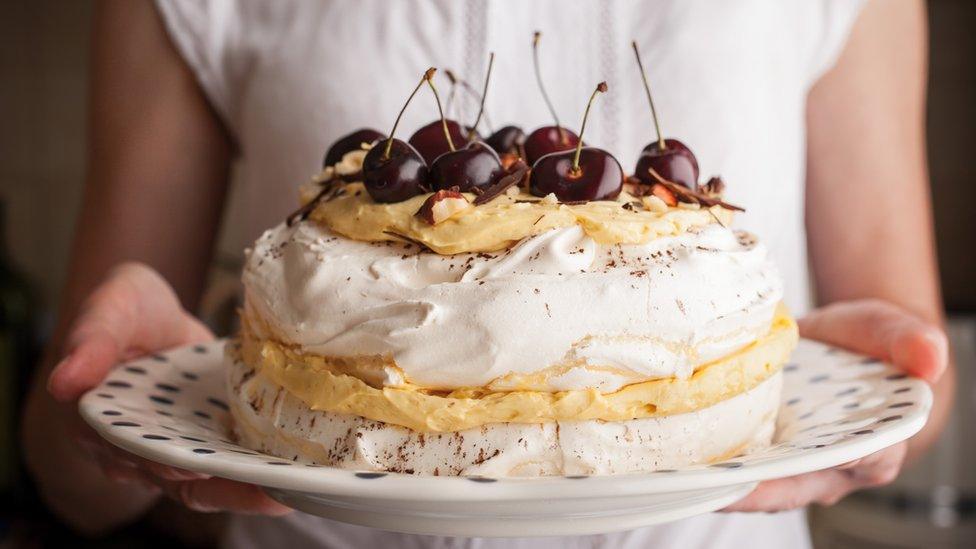
New Zealand is in the grip of a nationwide egg shortage which is driving up wholesale prices and putting its much-loved dessert, pavlova, at risk.
Supermarket shelves are bare and some stores are putting restrictions on the number of eggs customers can buy.
A long-awaited government ban on battery-caged hens came into effect this month, squeezing supplies and driving up costs.
Michael Books, executive director of the country's Egg Producers Federation, says there now aren't enough hens in New Zealand to keep up with demand.
"There are currently 3.5 million laying hens," he says, "but 3.9 million are needed to ensure supply".
Kylie Harvey is a baker who owns Khaos Cakery in New Zealand's biggest city, Auckland. She uses 480 eggs a week and is now having to hunt around to get enough for her creations.
"We haven't been able to get eggs from our usual bulk suppliers, so we're basically going to supermarkets and cleaning them out of eggs. It's been hard because they've brought in limits, so some places you can't go in and buy more than two trays of eggs".
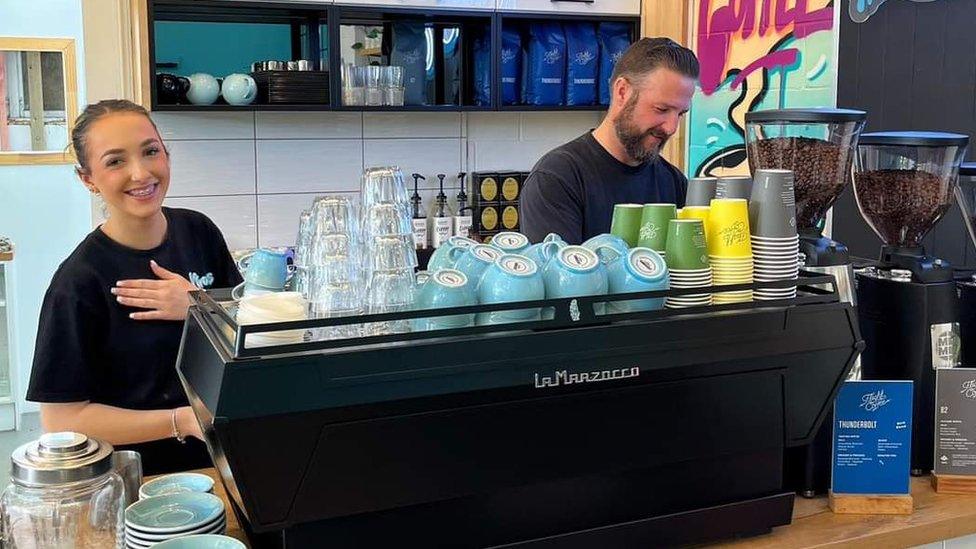
Khaos Cakery is a family affair - Kylie runs the cafe with her husband Peter whose daughters are often front of house
Without them, Ms Harvey says she can't make one of New Zealand's most popular dishes, pavlova - a meringue-based dessert in which a key ingredient is egg white.
"It's a problem I didn't think we'd have," she says. "I didn't think eggs would be something that would be an issue, ever."
The Egg Producers Federation of New Zealand says more than three-quarters of its members have had to change their farming methods or leave the industry since 2012, when the government announced it intended to ban eggs from battery-caged hens.
Battery cages can be as small as an A4 piece of paper and are widely considered to be cruel to chickens. The practice is banned in most of Europe, including the UK, along with Mexico, Israel and Canada. Australia too has announced it is phasing out the cages by 2036.
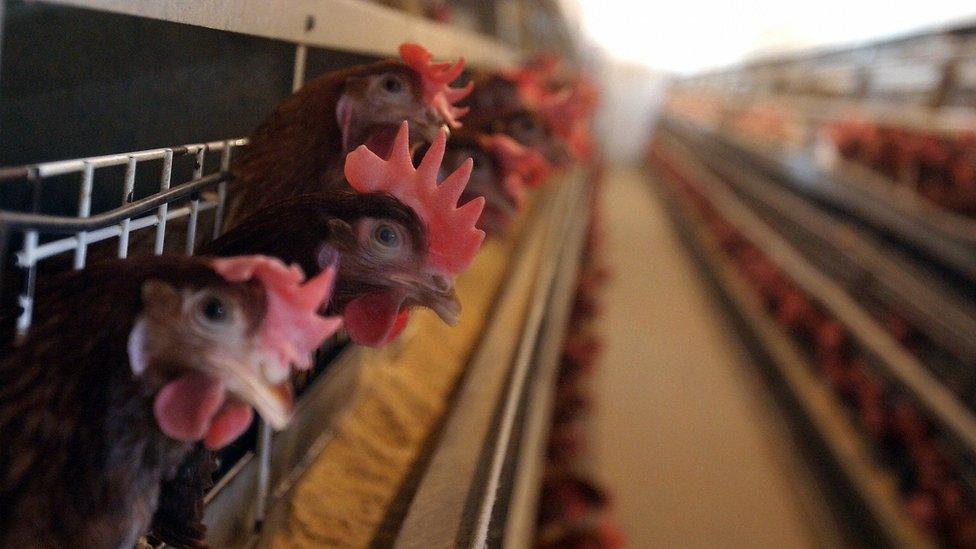
Most of Europe has already stopped using battery cages
Mr Books says many farmers shifted to "colony" egg production, which gives the birds bigger cages with more room to move around. But in 2019, he says, came an announcement which shocked the industry.
"Our two supermarket chains, and we only have two in New Zealand, decided within a couple of weeks of each other, that as from 2025/2026 they would no longer sell eggs from the colony cage system.
"And that threw the farmers who were still to transition into complete disarray, because what were they going to do? If they were to go free-range they'd have to buy a new farm."
New Zealand's producers have also been hit by the problems affecting those in many other countries. The war in Ukraine has pushed up the price for feed, and diseases have reduced the bird population.
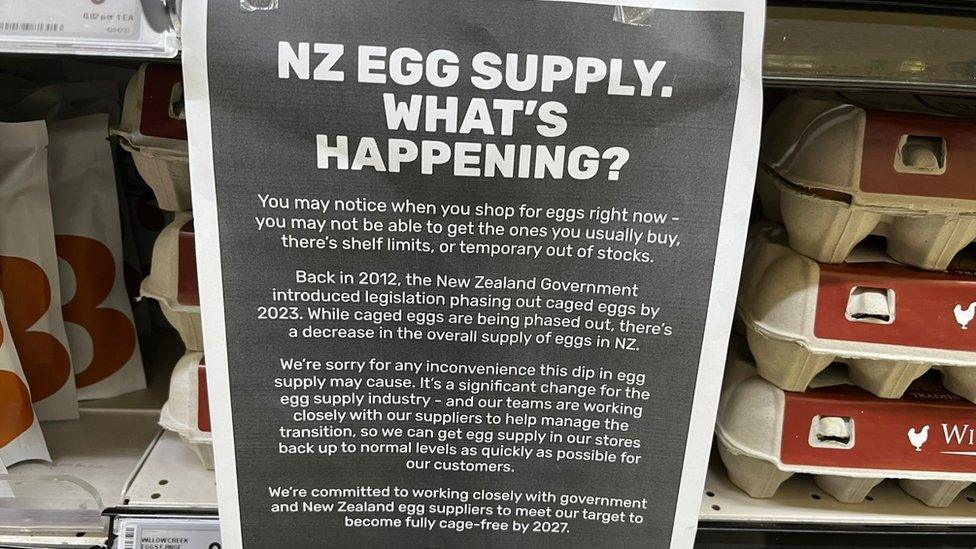
Supermarkets have put a limit on the number of eggs customers can buy
The New Zealand government says it's been in regular contact with operators and farmers who needed to transition away from battery-caged hens. It adds that the move did involve an "investment for egg producers".
"The phased transition acknowledged this and gave producers time to make the changes in a way that would minimise the impact to their business and any possible cost to consumers."
The egg shortage in shops has triggered a buying frenzy for pet chickens.
Searches for the birds on New Zealand's biggest online auction site have doubled over the past week, and their cost has risen even more.
A laying hen usually sells for NZD$18 (£9.40), but the price is now at NZD$80 per bird - so New Zealanders seeking to make a pavlova with freshly laid eggs in the future face a hefty upfront cost.
Related topics
- Published6 December 2022
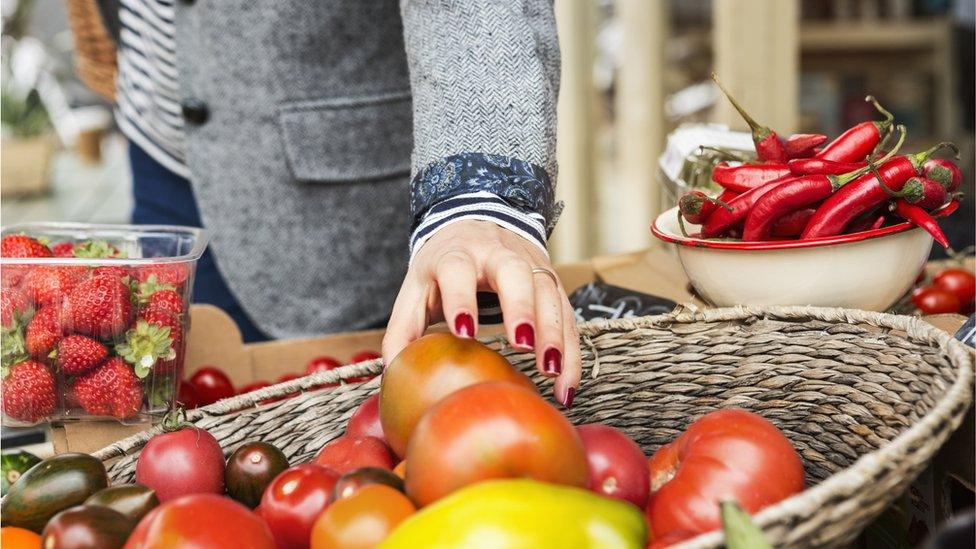
- Published30 November 2022
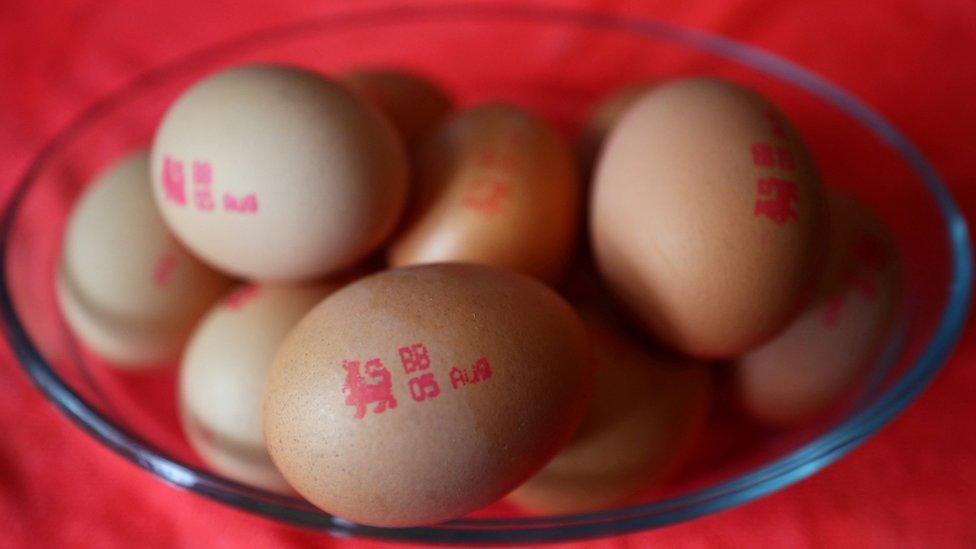
- Published2 December 2010